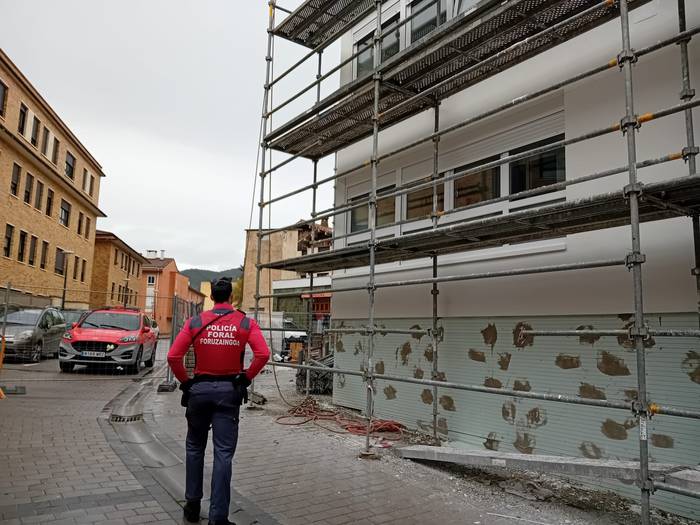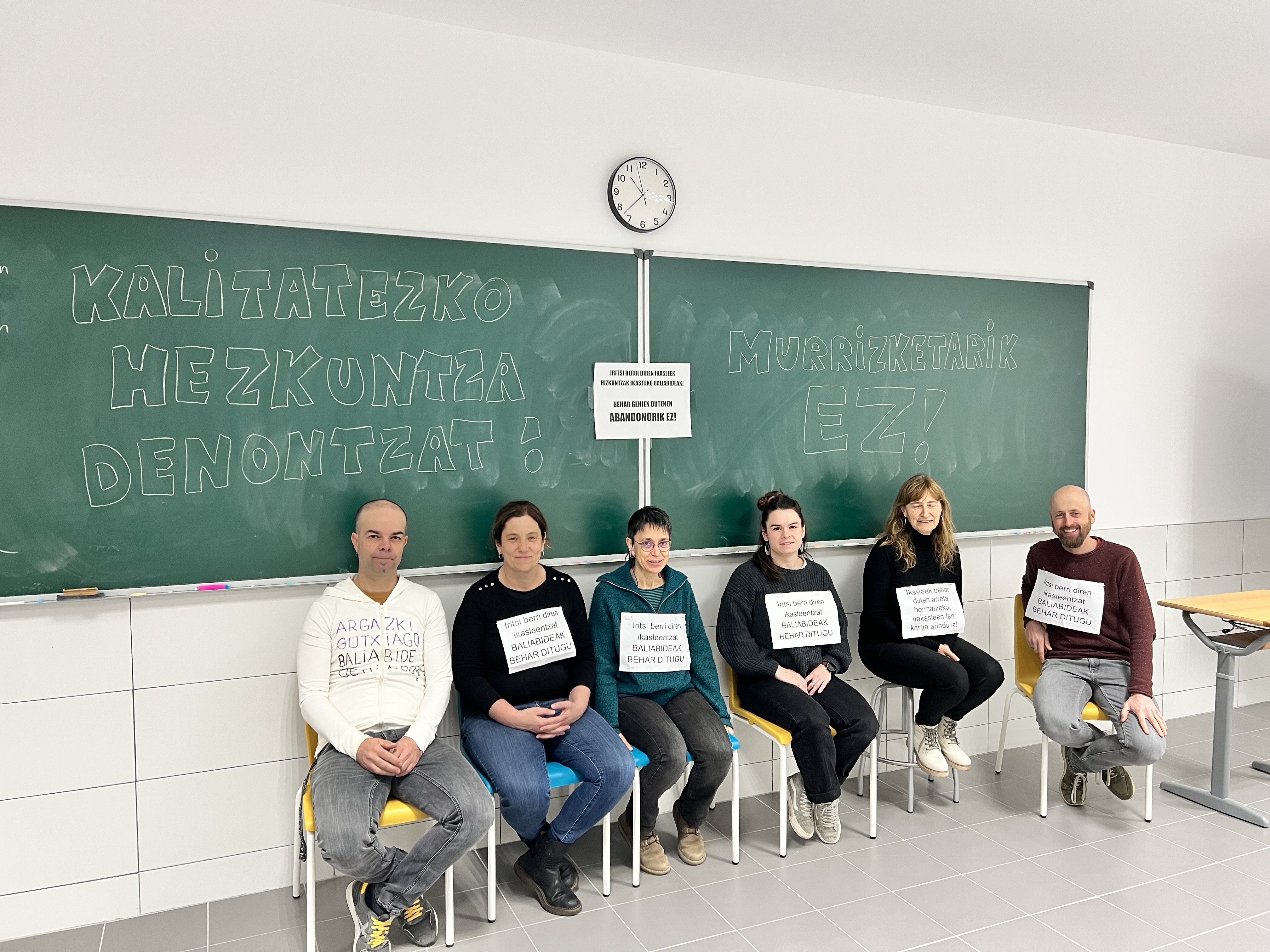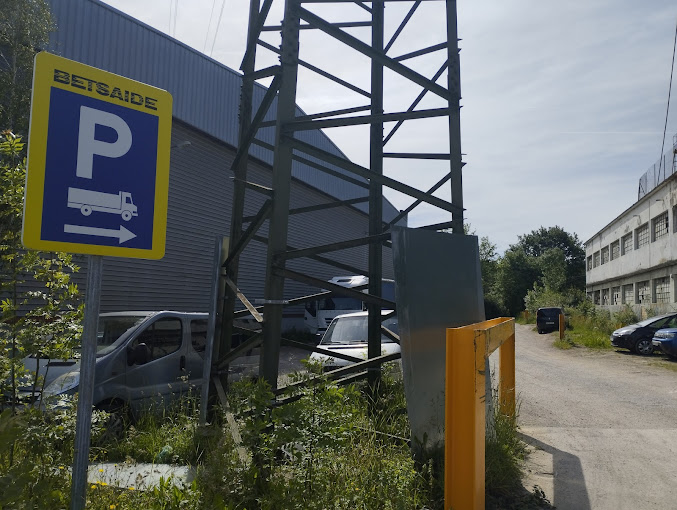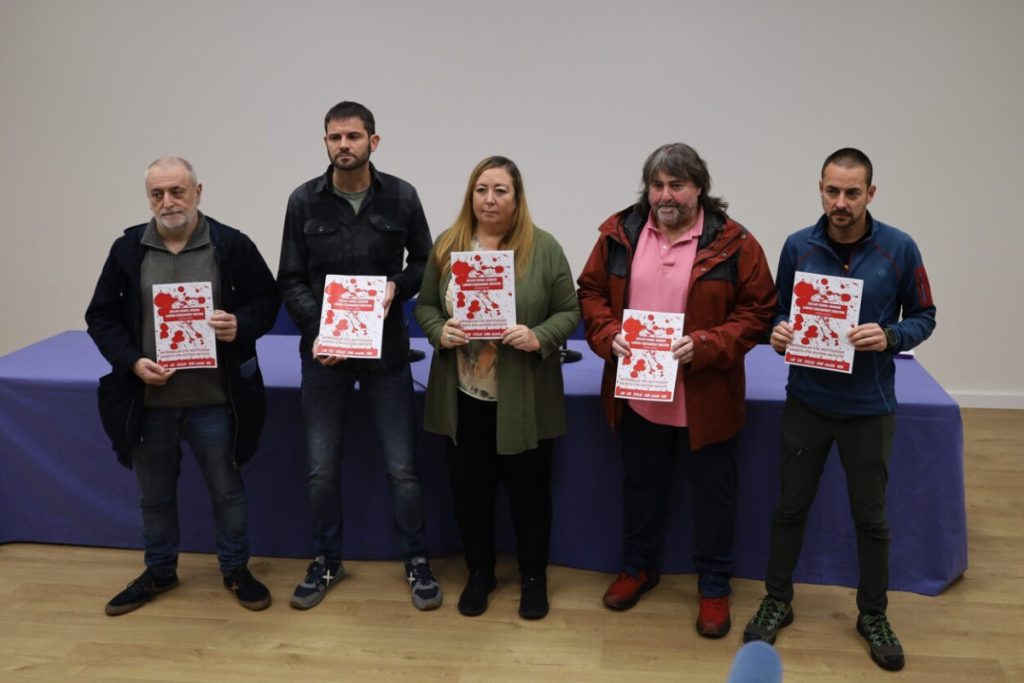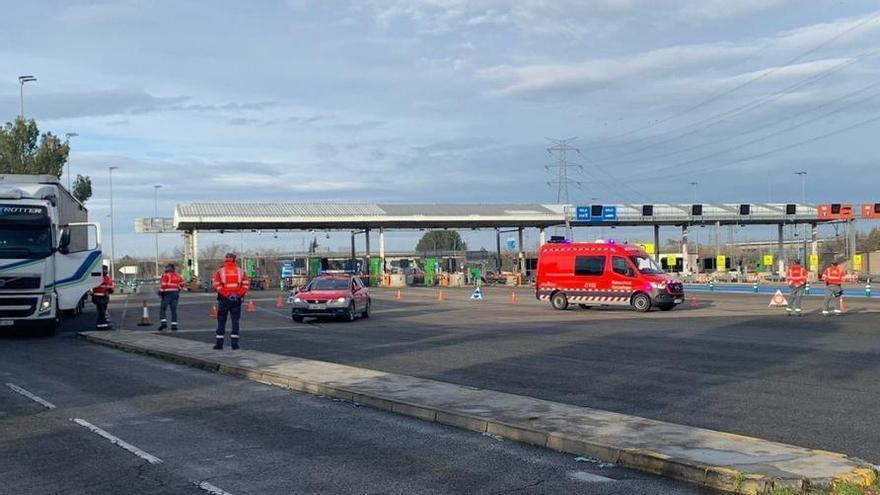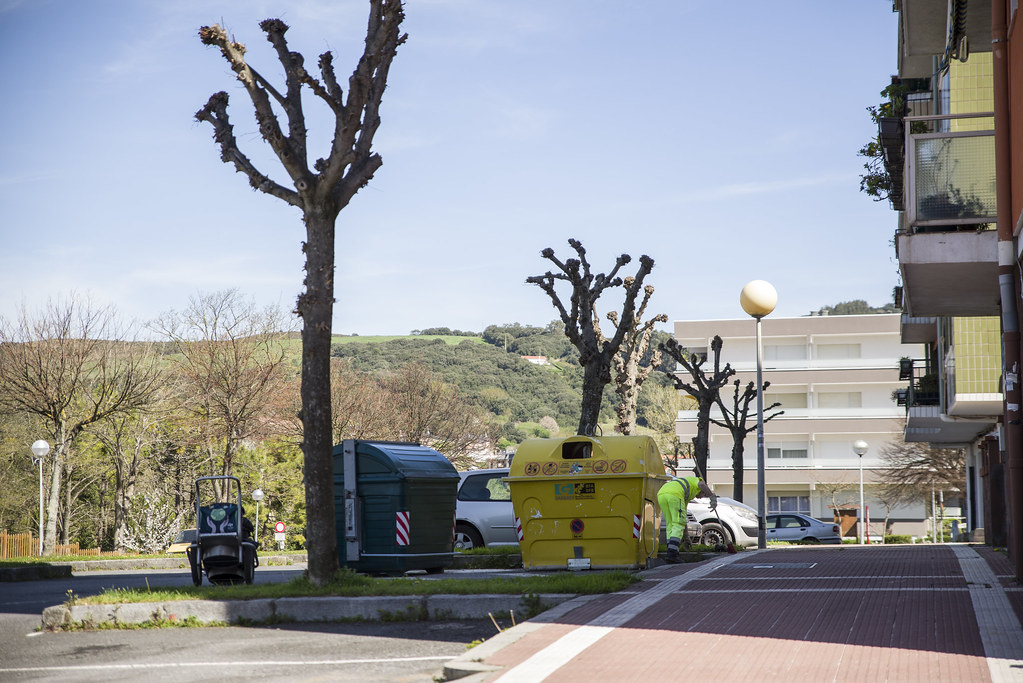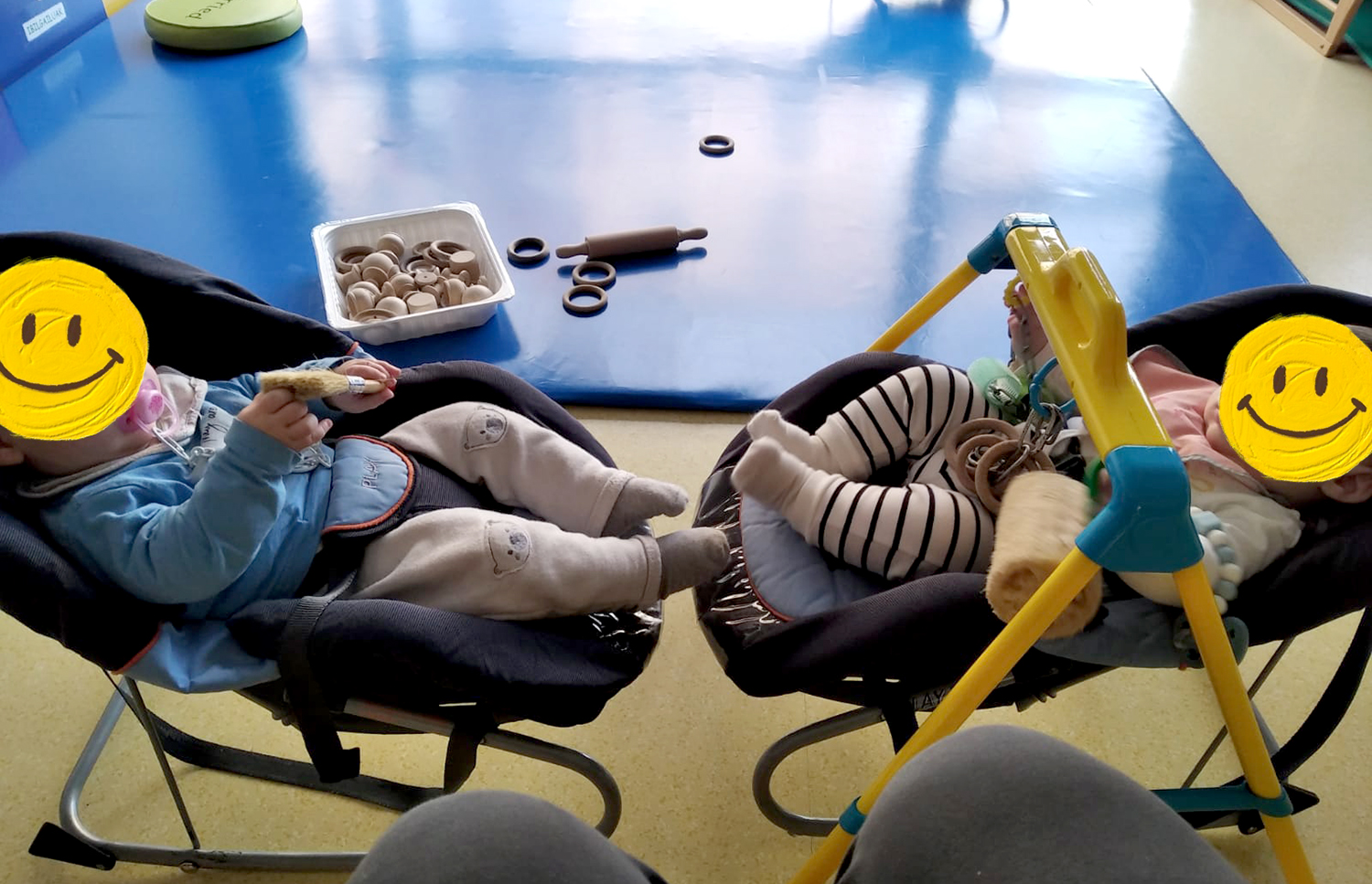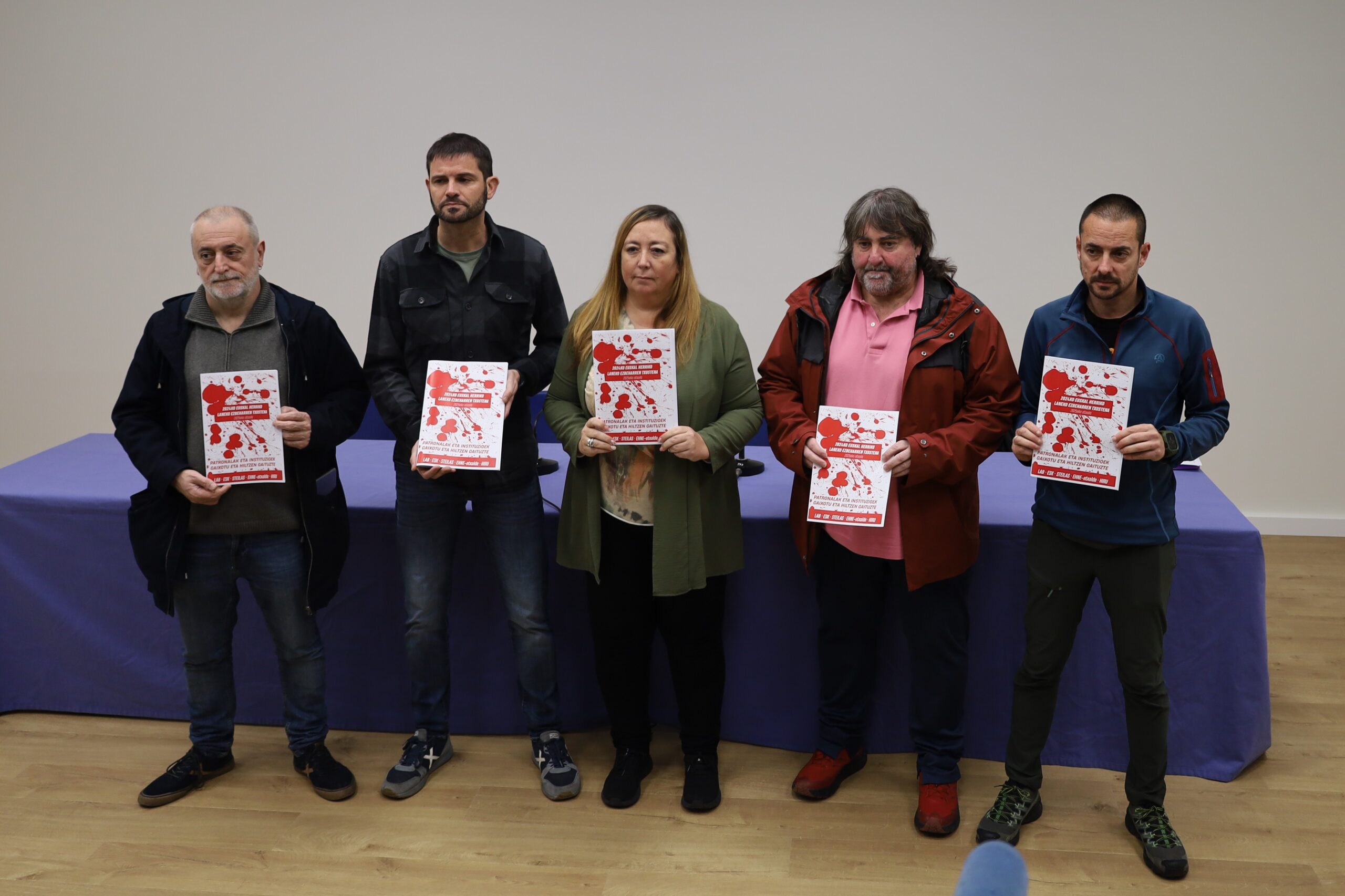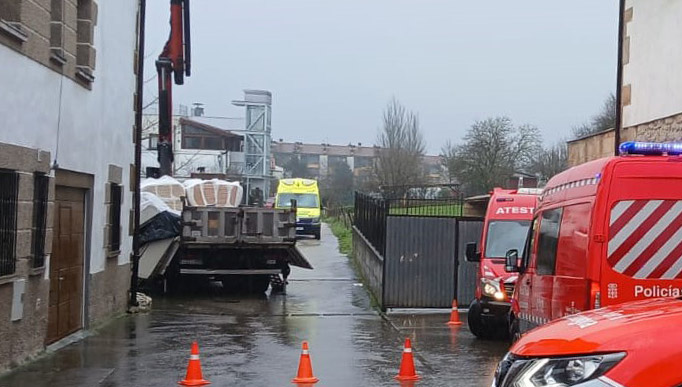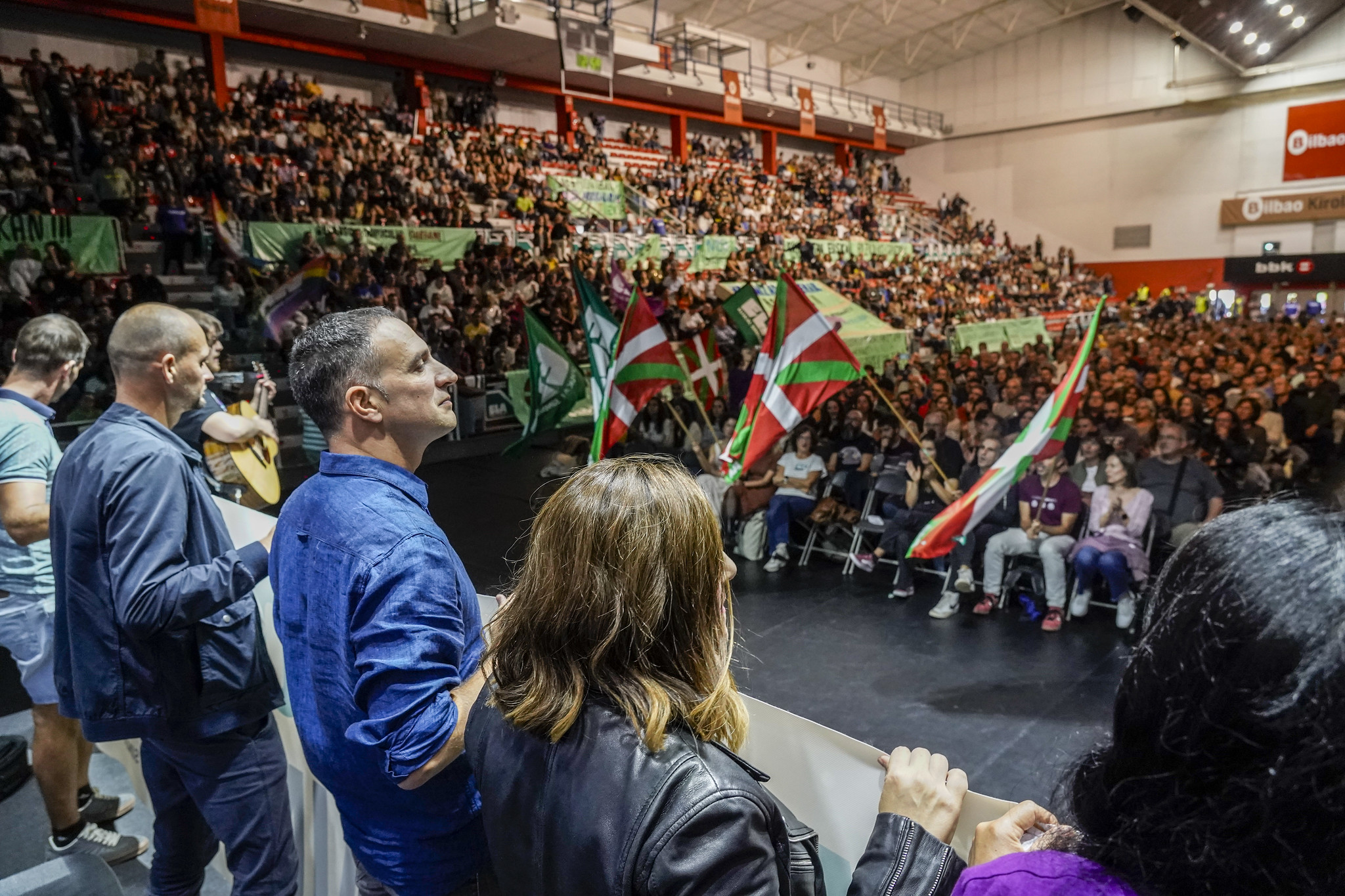The tear of relocation in the Alavesa plain
- The 147 workers at Daewoo Electronics have stayed on the street just around the holiday. The crisis has exacerbated the relocations; the massacre of the Korean company with the Vitoria-Gasteiz factory shows that the times of bloody labour conflicts are beginning.
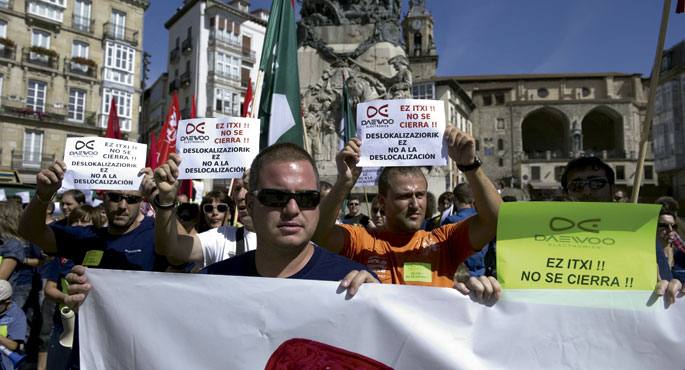
In the immense polygon of Jundiz, in Vitoria-Gasteiz, there is a damn avenue. First it was Saunier Duval’s turn, which fired 67 people at the end of 2010. Then came the Enamels San Ignacio and Daewoo. So in the center of the polygon, which has an area of 7 million square meters, you can see a deep scar. Three companies have been the victims of relocation: The German multinational Vaillant was in charge of bringing the production of Saunier Duval to Slovakia, Enamaciones San Ignacio took his own to Morocco and Daewoo to South Korea.
Relocation is not something new in Euskal Herria. According to a study conducted by the Foundation of the Spanish Savings Banks Funcas, between 1999 and 2006 60% of the multinational companies left the CAV. But it seems that the current crisis has brought with it a further wave of relocation: in a week of September, more than 600 people have been affected by an employment regulation dossier (ERE) that has dissolved their employment contract, including the 178 BSH workers in Skisroz and the 140 workers at the Indar de Beasain plant – both in the hands of multinationals. In addition, the perspective of the unemployed is not that of the fat cow years: in August there were 182,136 unemployed people in Hego Euskal Herria, of whom almost half no longer receive any unemployment benefit.
Daewoo and remote nuts
The closure of Daewoo has caused an earthquake in society, as the case of this multinational is paradigmatic. It was implemented in Álava in 1997 and the involvement of the Basque Government was fundamental to this. It was ensured that it would bring wealth and employment; an investment of EUR 72 million and 412 jobs. The Department of Industry granted aid amounting to EUR 18 million and benefited from tax incentives and subsidised land. But the police were done. Investment and jobs did not reach half, and only generated a precarious job, with a three-month strike in return. The Basque Government therefore called on Daewoo to reimburse EUR 1.8 million. For its part, the management of the household appliances sector criticised the public aid received by Daewoo and reported it to the European Commission (EC). Europe considered subsidies as “state aid” and investigated tax holidays, which have also been declared illegal.
The closure of Daewoo has been considered as the failure of the industrial policy promoted by the institutions by the PNV in the 1990s, as a castle artificially built with subsidies. On the contrary, the attraction of foreign investment has been the passion of all Governments. The López Executive, for example, has launched this year through SPRI the agency invest in the Basque Country to boost the investment of foreign capital in the CAV.
Foreign investment, however, is a double-edged sheet. You can bring money and jobs as you have brought them: “We are not interested in the companies that buy and take away,” said SPRI President Tomás Orbea recently. In the Basque Country the weight of the indigenous industry is high compared to other countries, but there are regions that depend on multinationals, especially in Lapurdi, Navarre and Álava. In Álava, the Chamber of Commerce stated in 2007 that one in three workers in the industry worked in such companies, including Michelin and Mercedes Benz. Newell, Cegasa, Kennametal, Kemen, BH, Ceplastik, Thaiser have been closed since then… In most of them the shadow of relocation and foreign black hands has been behind. In the first half of 2011, the Basque Government approved 76 EEC in Llanada Alavesa, one of the highest in the Community.
The surprise after the holidays: day and night…
Daewoo workers are testing T-shirts at Plaza Nueva de Vitoria-Gasteiz. The posters and speakers are ready to be concentrated while the members of the works council have a conversation with the mayor, Javier Maroto. On 22 August, after returning to the Jundiz factory, they met with closed doors, some dismantled machines and the stock of 10,000 refrigerators moved in a few days.
“A year ago the first SREs began and it was the initial thought, ‘oysters parora’, but others were like this. However, the company did not invest and we felt there was something coming, so we started to mobilize in July.” Estibaliz Azpitarte, 36 year old Gasteiztarra, has been working on the project since it was established in Daewoo Jundiz. This summer has not gone to any part of the holiday: “We’ve had a very cheery vacation. I’ve chosen to stay here waiting for whatever comes.”
Daewoo seeks to end the workers with a brief allegation of "market reasons", but the Basque Government has not definitively approved the ere, claiming that there is a lack of documentation. The workers of Daewoo in Vitoria-Gasteiz claim that the company has left the factory “die”, as it has not invested in manufacturing refrigerators of the A+ and AA+ seal, which will be mandatory in Europe. On the contrary, at the Incheon factory in South Korea, they have started producing refrigerators of these seals.
In fact, the company has long wanted to sell its business, as in 1999 the monster of the Daewoo group went bankrupt due to the Asian financial crisis, many of its subsidiaries split, including Daewoo Electronics, owner of the Jundiz plant. Daewoo Electronics, dependent on some of the creditors, has been negotiating with Iranian firm Enthekap and Swedish firm Electrolux to sell the company in recent months, with EUR 529 million on the table, but without success.
Parents and mortgages
The vitorians know very well what the struggles of the workers are like. They have in memory the conflicts of the transition or the long strikes such as that of Caballito. Several people are collecting signatures on the streets: “We’ve received a lot of support and a lot of encouragement, but there’s everything, some people think we’re going to ask for money,” says Idoia Tejedor. When he started four years ago in Daewoo, it would not have occurred to him that he would have just collected signatures. “When I said at home, they didn’t think they wanted to throw us away. But well, others are worse than me, with children, etc.” It's a young working group, and most of them are mortgaged, many of them with young children, and there's a couple who have stayed on the street.
With a view to the future, they are engaged in the subject of negotiations with the management of the company. You know it's going to be a long process, because in two weeks, nothing's moved in the process, but you're going to let the rest be pressed. “You can’t focus on anything else,” says Estibaliz Azpitarte, “I thought I’d start studying, but I haven’t been able to do it, at least until this is fixed.”
Oporretatik bueltan lantegia itxita eta stocka eramanda aurkitu duzue, ez al zarete mugimenduez ohartu?
Bai noski, uztailean hasi ziren, hautsa hartzen urteak zeramatzaten molde zaharrak txatartegian saldu zituzten.
Uztailean salatu zenuten lantegia “hiltzen” uzten ari zirela. Irailean hasi den kaleratze prozesuan aurkitu al duzue beste frogarik hori baieztatzeko?
Detaile oso adierazgarria ikusi dugu. Eusko Jaurlaritzara joan ginenean esan ziguten enpresa ez zitzaiela laguntza eskatzera joan, lantegia aurrera ateratzeko edo langileei irtenbidea emateko. EEEa entregatu zuten eta alde egin zuten. Lehenengo aldia omen da horrelako zerbait pasatzen dela. Ez duzu sikiera laguntza eskatzen? Ez, ez zuten horrelakorik behar, lantegia hiltzen utzi nahi zutelako.
EEEa “txapuza” bat izan dela esan duzue, Eusko Jaurlaritzak dokumentazio gehiago eskatu behar izan du.
Hor ikusten da EEEa aurkezteko argumenturik ez dutela, bestela ez lukete horrelako arazorik izango. Baina sinatu gabeko paper batzuk aurkeztu dituzte, inork ikuskatu gabekoak, zigilurik ere ez dute.
Enpresak esan du edozer dela ere itxi egingo duela.
Mehatxua egin dute, besterik da hori egin dezaketen.
Eusko Jaurlaritzak EEEa atzera botaz gero, negoziazioa hasiko litzateke zuzendaritzaren eta langileen artean. Zer lehenetsiko duzue? Hasi zarete indemnizazioetan pentsatzen?
Ez dugu indemnizazioez hitz egin nahi, gure lanpostua mantendu nahi dugu. Indemnizazioa segituan amaitzen da, denok dugu familia bat edo hipotekaren bat; etorkizun bat nahi dugu.
Zeinena da ardura?
Enpresarena. Oso gaizki kudeatu du kontua eta utzikeriaz jokatu du. Baina erakundeek ere badute zer esanik, Eusko Jaurlaritzak 6 milioi euro eman zizkion baina gero ez zituzten planak konplitu.
Daewoo bere negozioa saldu nahian ibili da, zergatik baina?
Beste nonbait inbertitu nahi dutelako agian. Arraroa da, EEEan ez dute arrazoi ekonomikorik azaltzen, produktiboak eta teknikoak baizik. Baina arazoa ez da produkzioa, badakigu bezeroek ez dutela eskaerarik atzera bota; aldiz, enpresak zuzenean telefonoa eskegi die askotan.
Urte hauetan lan baldintzek zer bilakaera izan dute?
360 euro kobratzen hasi ginen eta grebara jo behar izan genuen jasanezina zelako, gazteak ginen baina ez tuntunak. Gero, soldatak igotzen joan dira, baina 2008an, berriz ere, greba egin behar izan genuen. Topera produzitzen ari ginen, 900 hozkailu eguneko, eta hala ere, ez zituzten gure baldintzak hobetu nahi, krisia aitzaki hartuta. Aberastasuna eta garapena ekarri beharko lituzkeen enpresa batek, hamalau urtetan gatazkak besterik ez ditu sortu.
Zer babes jaso duzue erakundeetatik?
Eusko Jaurlaritzak EEEa eten zuen, egin behar zuena egin zuen. Babes handia izaten ari gara, baina eduki genezake gehiago. Askotan ahoa betetzen zaie enpleguaren alde. Esmaltaciones San Ignaciokoak ere greban dira. Enplegua defendatzeko aukera paregabea dute orain.
Economists love the charts that represent the behaviors of the markets, which are curves. I was struck by the analogy of author Cory Doctorow in the article “The future of Amazon coders is the present of Amazon warehouse workers” on the Pluralistic website. He researches the... [+]
Buñueleko (Nafarroa) kasuan, 34 urteko gizona makina batean harrapatuta geratu da. Arratzun (Bizkaia), aldiz, garabiak goi-tentsioko linea bat ukitu ostean hil da 61 urteko gizona.
Institutuko giza baliabideak hobetzeko eskatu dute irakasleek, ikasleei kalitatezko arreta eman ahal izateko. Kartelekin eta pankartekin itxaron diete irakasleek lehendakariari. Jaurlaritzako ordezkariek ikastetxeko zuzendaritzari esan diote ez zutela "horrelakorik... [+]
Datorren astelehenean egingo dute espedientearen kontsulta epeko bigarren bilera.
Betsaide enpresan gertatu da, 08:00ak aldera. Urtea hasi denetik gutxienez bederatzi behargin hil dira.
2024ko laneko ezbeharren txostena aurkeztu dute LAB • ESK • STEILAS • EHNE-etxalde eta HIRU sindikatuek aurtengo otsailean. Emaitza larriak bildu dituzte: geroz eta behargin gehiago hiltzen dira haien lanpostuetan.
Jakina da lan ikuskariak falta ditugula geurean. Hala ere, azken egunotan datu argigarriak ematea lortu dute: lan ikuskaritzaren arabera, EAEko enpresen %64ak ez du ordutegien kontrolean legedia betetzen. Era berean, lehendakariordeak gaitzetsi du, absentismoaren eta oinarrizko... [+]












